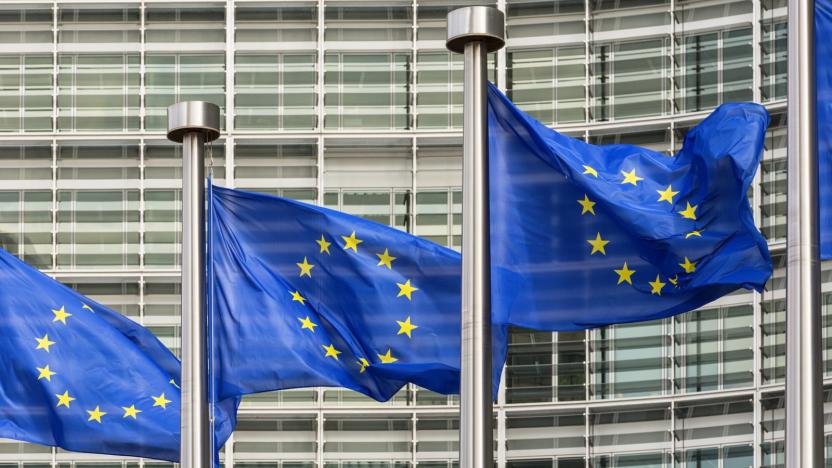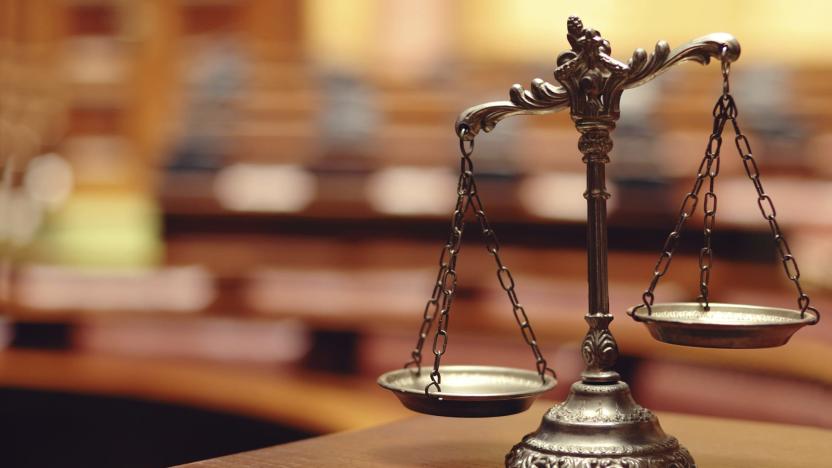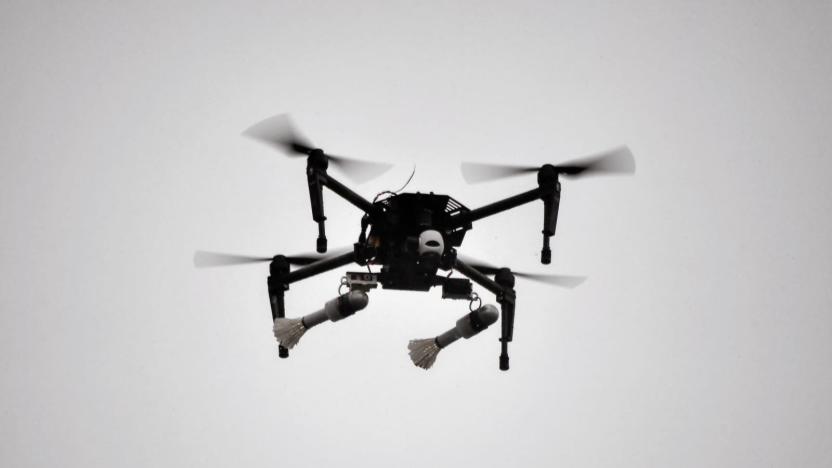legislation
Latest

US Senate passes bill modernizing music licensing and payouts
The US Senate has unanimously passed the Music Modernization Act, which aims to bring the way the music business works in line with the digital age. Providing the bill is met with approval from the House, and is subsequently signed by President Donald Trump, the legislation -- renamed the Orrin G Hatch Music Modernization Act in honour of the Republican senior senator responsible for introducing the bill -- will finally be enshrined into law. It's not expected to meet any opposition.

European MPs vote in favor of controversial copyright laws
The EU has voted on copyright reform (again), with members of European Parliament this time voting in favor of the extremely controversial Articles 11 and 13. The 438 to 226 vote, described as "the worst possible outcome" by some quarters, could have significant repercussions on the way we use the internet.

Australian law could force tech firms to hand over customer data
Australia has been relying on criminal telecommunications legislation dating back to the days of the landline, so proposed laws unveiled today are designed to bring the country's legal enforcements in line with the many nefarious opportunities the internet presents for hackers. But it's raised eyebrows among some industry experts.

NYC will cap the number of Uber and Lyft vehicles on its streets
The New York City Council just passed legislation to temporarily cap ride-sharing vehicles in the city for a full year. They started considering the proposed bills weeks ago to freeze the amount of licenses granted in order to study the growing industry. New York will be the first major US city to limit the number of vehicles operating under Uber, Lyft and other ride-sharing providers -- and, by passing another bill, let the city establish a minimum pay rate for app-based drivers.

US bill forces tech companies to disclose foreign software checks
Technology companies could soon be forced to reveal if they have allowed agencies in countries such as China and Russia to closely examine their software. The legislation -- part of the Pentagon's spending bill -- was drafted in response to a Reuters investigation last year which found that in order to sell to the Russian market, some software makers had allowed a Russian defense agency to hunt for vulnerabilities in software also used by some US government agencies.

France bans smartphones in schools
Under new legislation, French students will be prohibited from using smartphones and tablets while at school. The law, which was originally noted in President Emmanuel Macron's election campaign, was elevated to a matter of public health amidst concerns French youth has become super-connected.

Senator suggests ways to combat misinformation and boost data privacy
Senator Mark Warner (D-VA) has put together a policy paper that both highlights some of the bigger problems facing online platforms today and includes potential ways in which to address them. Axios got ahold of the 23-page paper and it focuses on three main issues -- misinformation, data privacy and competition. "The hope is that the ideas enclosed here stir the pot and spark a wider discussion -- among policymakers, stakeholders and civil society groups -- on the appropriate trajectory of technology policy in the coming years," says the paper.

White House reportedly working on federal data privacy policy
The Trump administration is working on a set of data privacy protections, the Washington Post reports, and according to the National Telecommunications and Information Administration, officials have held 22 meetings with more than 80 companies and groups since last month. Companies like Facebook, Google, AT&T and Comcast have been involved, according to four Washington Post sources familiar with the matter. The short-term goal is to deliver a data privacy proposal -- including how data should be collected and handled and what rights consumers have regarding that data -- which could serve as a guide for lawmakers as they consider legislation.

Bipartisan bill aims to study how tech is affecting kids
A bipartisan group of senators and representatives has introduced legislation that would fund research into the effects technology and media have on infants, children and adolescents. The funding would support research into the use of mobile devices, computers, social media, apps, websites, TV, films, AI, video games, VR and AR with a focus on cognitive, physical and socio-emotional development. "While technology educates and entertains our children every day, we need a better understanding of how it impacts their social, psychological and physical well-being," Senator Edward Markey (D-MA) said in a statement. "This bill will enable experts to conduct critical research that will inform parents and policymakers about how best to protect American children's bodies and minds from issues such as tech addiction, bullying and depression in the digital age."

Russia considers fake news law that would fine social networks
Russia is considering a new law that would allow the government to punish websites and social networks for user posts deemed inaccurate, the New York Times reports. If passed, the new law would require websites with more than 100,000 daily visitors and a comment feature to remove inaccurate information posted by users within 24 hours. If they don't comply, the sites could face a fine of up to 50 million rubles ($793,000).

Senate bill could bring emergency alerts to streaming services
You knew it was only a matter of time before legislators pressed for additional reforms to prevent another false missile alert like the one that rattled Hawaii. US Senators Brian Schatz and John Thune have introduced a bill, the READI Act (Reliable Emergency Alert Distribution Improvement), that would both reduce the chances of mistaken alerts and explore ways to bring those alerts to more people. It would "compel" FEMA to create best practices for emergency alert systems, encourage states to review their systems and create a false alert reporting method, but its most notable inclusion is the possibility of receiving alerts in more places -- including streaming services.

US court rules that using online photos can be considered 'fair use'
In the real world, copyright legislation seems simple enough -- don't steal something and claim it as your own work. Online, however, things are murkier. The EU Parliament recently passed a law that would stop users from uploading copyrighted content -- but in the digital age, what does 'copyright' actually cover? An Insta picture of your morning coffee? A meme? What about a cropped photograph of a D.C neighborhood? It's the last of these options that resulted in a legal tussle, and ended with a federal court ruling 'fair use'.

California bill could be a major boost to personal data privacy
California legislators have introduced a bill that would give the state's residents more control over their online data and notably, would take the place of a proposed ballot measure that has been rigorously opposed by tech companies like Amazon and Microsoft. The bill was introduced by Assemblyman Ed Chau (D) and state Senator Robert Hertzberg (D) and is the result of a deal stuck between lawmakers, stakeholders and Alastair Mactaggart -- the California real estate developer and chair of Californians for Consumer Privacy who introduced the ballot initiative. "This legislation, like the initiative, would provide simple, powerful rights to Californians: tell me what you know about me. Stop selling it. Keep it safe," he said in a statement.

'Upskirting' will become a criminal offense in the UK (updated)
It will soon be a criminal offense in the UK to point a camera up a woman's skirt and take a photo (an act called "upskirting"), with offenders facing up to two years in jail. It's hard to believe, but there's no specific law on the books, so police have had trouble prosecuting the creeps that do it. The new legislation will be largely through the efforts of victim Gina Martin. She was upskirted at a music festival in London, and despite having photographic evidence, police said they were unable to act because the photos weren't considered graphic.

Proposed law would give DHS power to seize and destroy drones
The Senate is currently considering a bill that would give the Department of Homeland Security more power to research, surveil, seize and destroy drones flying in the US, Gizmodo reports. Yesterday during a hearing, DHS officials expressed support for the bipartisan legislation, saying current laws prevent the agency from effectively mitigating the potential threats presented by drones.

California Senate passes net neutrality bill
California just edged closer to establishing its own net neutrality law in the wake of the FCC's decision to kill federal measures. The state Senate has passed a bill that would not only institute rules like those the FCC implemented in 2015, but would forbid the practice of zero-rating services to give them advantages over competitors. Much like Oregon and other states making similar legal moves, internet providers would have to honor these neutrality rules if they wanted government contracts.

San Francisco temporarily removes electric scooters for permit process
San Francisco is about to end its electric scooter scourge... for a while. The city's Municipal Transportation Agency has posted its permit application for companies wanting to operate e-scooters under a one-year pilot program and accompanying law, signalling that the two-wheelers need to leave the streets until services obtain permits. The firms have until June 4th to remove their scooters without facing impounding and fines (up to $100 per scooter), and have to submit their permit applications by June 7th. No more than five companies will operate at the same time during the pilot period.

UK to introduce internet safety laws within 'next couple of years'
The UK government is acting on its vow to make the internet safer... whether or not companies like the idea. In the wake of the Internet Safety Green Paper, Digital Secretary Matt Hancock has unveiled plans for online safety laws that will tackle cyberbullying, child exploitation, extremism and other "legal and illegal harms." Government ministries, charities and the public will work together on a white paper later in 2018 that will "set out" the legislation, with Hancock expecting the laws to be ready within the "next couple of years."

Bipartisan bill aims to prevent the government from forcing backdoors
A number of US Representatives introduced the Secure Data Act today, bipartisan legislation aimed at preventing the government from forcing backdoors into encrypted products and services. The act was introduced by Representatives Zoe Lofgren (D-CA) and Thomas Massie (R-KY) and was cosponsored by Jerrold Nadler (D-NY), Ted Poe (R-TX) and Matt Gaetz (R-FL). "Encryption backdoors put the privacy and security of everyone using these compromised products at risk," Lofgren said in a statement. "It is troubling that law enforcement agencies appear to be more interested in compelling US companies to weaken their product security than using already available technological solutions to gain access to encrypted devices and services."

European EVs must be fitted with sound emitters by 2021
Electric vehicles come with a raft of features that make them a great benefit in our noisy, polluted world, but now one previously-lauded quality is under fire. Campaigners say that EVs' lack of noise -- particularly when traveling at low speeds -- poses a significant safety risk to cyclists and pedestrians. The EU agrees, and so from July 2019 all new electric and hybrid vehicles sold in Europe must emit a noise when travelling slowly. Existing EVs will have to be retrofitted with a device by 2021.





